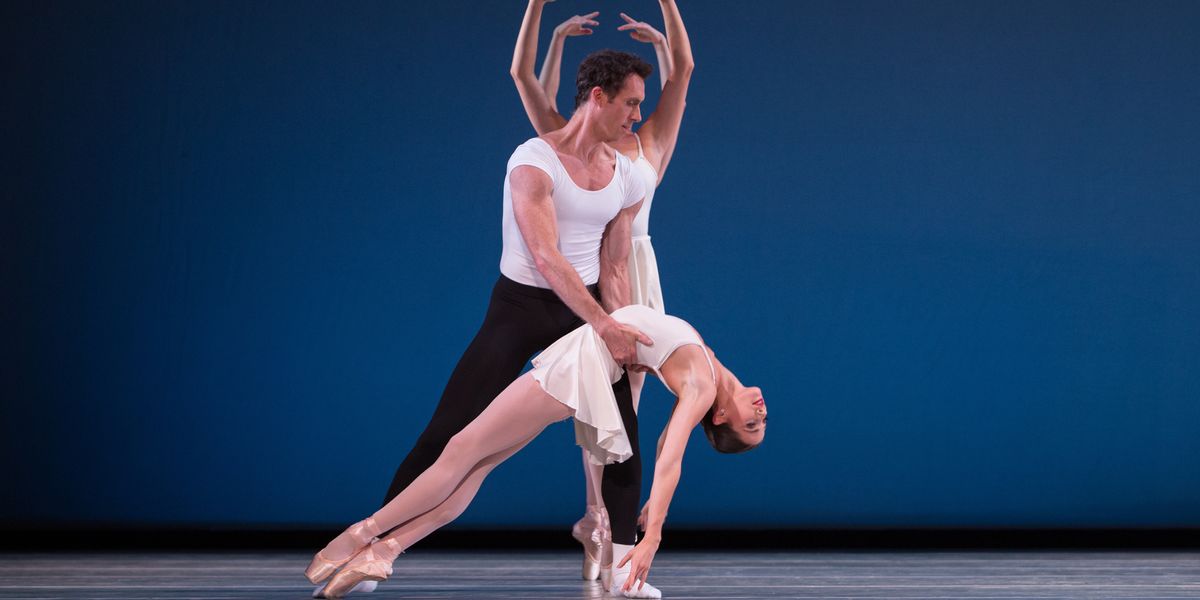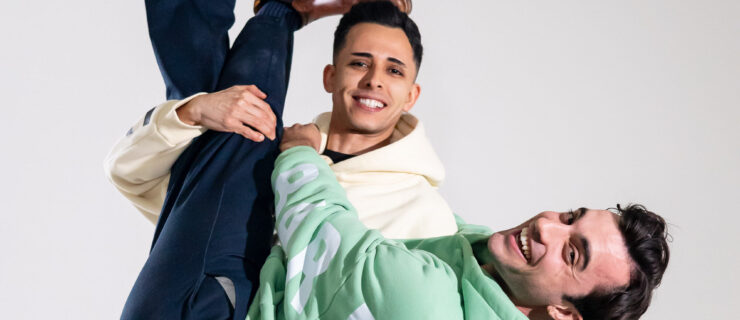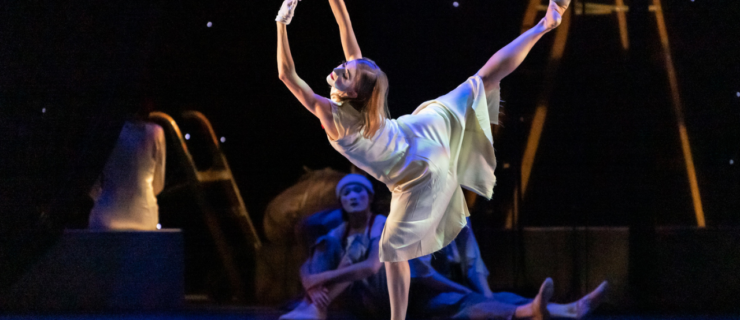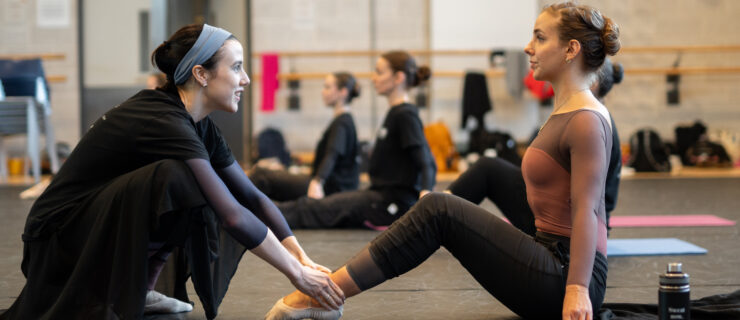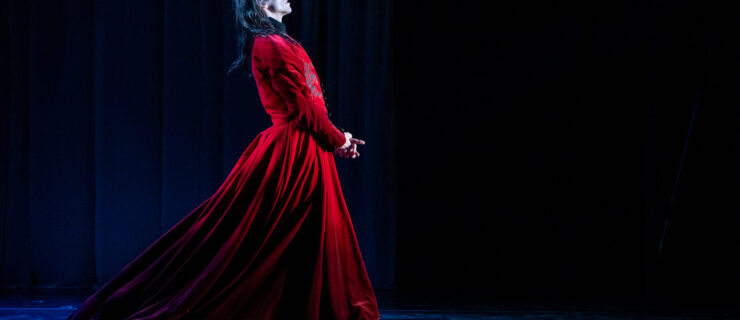James Ihde's Advice for Male Dancers on Dealing with Bullying, Being a Better Partner and Why Tricks Aren't Everything
One of Pennsylvania Ballet’s longest tenured dancers, soloist James Ihde is retiring from the company after 25 years. The Kent, Ohio–native began his dance journey at the Dance Institute of the University of Akron and The Rock School before joining Pennsylvania Ballet in 1993. His numerous stage credits include George Balanchine’s Agon, William Forsythe’s Artifact Suite, Jiří Kylián’s Forgotten Land and Christopher Wheeldon’s Liturgy. Before his final performance on May 13, Ihde offers his advice to young male dancers looking to follow in his footsteps.
On Coping with Stereotypes
 Ihde and Ian Hussey in Matthew Neenan’s Archīva. Photo by Alexander Iziliaev, Courtesy PAB.
Ihde and Ian Hussey in Matthew Neenan’s Archīva. Photo by Alexander Iziliaev, Courtesy PAB.
“Once you are dancing and you see how many guys are in it and how physically hard it is, you realize the stereotypes about ballet being feminine and just for girls aren’t true. People who say such things don’t know what being a male dancer is all about and are basing their views on stereotypes passed down to them. A lot of guys put up with teasing or bullying and continue because they know they are actually getting the better end of the stick: I’m doing this amazing thing that I love, and I’m getting all these rewards from it. That outlook helped me. Don’t let somebody else tell you what you are supposed to enjoy.”
Starting Out—and Thinking Beyond Tricks
“When you first get in a company, they want you to be someone they can rely on who knows the choreography and looks good onstage. Guys tend to get ahead of themselves, always working on the big tricks that you are only going to get to do in a principal role. Later, if you are struggling to get noticed, working on being a reliable partner is a great way to set you apart and get you considered for larger roles.”
Being a Better Partner
 With Dayesi Torriente in David Dawson’s The Third Light. Photo by Alexander Iziliaev, Courtesy PAB.
With Dayesi Torriente in David Dawson’s The Third Light. Photo by Alexander Iziliaev, Courtesy PAB.
“Unlike a lot of things in ballet you have or don’t have—like good feet, extension, turnout and jumping ability—partnering can be a learned skill. Your primary objective is to always take care of the woman. Don’t worry so much about how you look. If you make her look good, you will by association. I became a better partner by thinking about their comfort level, being very open to change, and learning to use their counterweight versus trying to muscle my way through things. The more you can do that, the more fluid and relaxed the both of you are going to be.”
Secrets of a Long Career
 With Alexandra Hughes in Wayne McGregor’s Chroma. Photo by Alexander Iziliaev, Courtesy PAB.
With Alexandra Hughes in Wayne McGregor’s Chroma. Photo by Alexander Iziliaev, Courtesy PAB.
“Be an all-around good dancer and employee: Work hard, be polite, easy to work with, teachable, responsible and respectful. Those things can get you really far. Understand it is not always going to be about you—you can’t fall apart when things don’t go your way. Be a part of the team. When you have an opportunity, do your best to contribute what you can and what is unique about you as an artist.”
